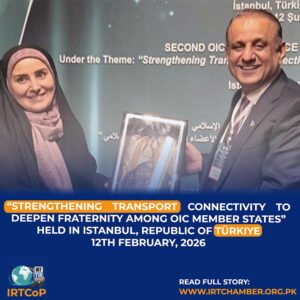The global shipping industry has been dealt another shake-up with Danish shipping giant Maersk announcing the termination of its direct cargo route between South Africa and the United States, effective October 1. This decision removes a crucial link between Africa’s largest economy and one of its most significant trading partners, forcing shipments to be rerouted via European hubs—a change that will inevitably lead to longer shipping times, higher transportation costs, and reduced competitiveness for South African exports.
Impact on South Africa and the Global Supply Chain
South Africa, a major player in mining, agriculture, and manufacturing exports, relies heavily on efficient maritime routes to the US market. With the direct connection now cut, goods will face:
- Increased lead times due to detours through Europe.
- Higher freight charges from additional handling and transshipment.
- Operational surcharges that will impact overall profitability.
These logistical hurdles come at a time when global trade tensions—particularly between the US and other major economies—are already creating uncertainty. For South African exporters, the new shipping reality could mean reduced market share in the highly competitive US market.
Lessons for Pakistan’s Trade and Transport Sector
While this decision directly affects South Africa, its ripple effects will be felt across international logistics, including in Pakistan. There are three main takeaways for our transport and trade community:
- Maritime Disruptions Impact Road and Inland Transport
Delays at sea translate into congestion at ports and extended inland transport schedules. For Pakistan, which is expanding its own transnational trade links, such disruptions serve as a reminder to build resilient multimodal transport networks that can adapt to sudden changes. - Over-Reliance on Single Routes Is Risky
Just as South Africa’s exporters are now scrambling for alternatives, Pakistan’s exporters and freight forwarders should avoid dependency on single maritime corridors. Developing diverse trade routes through ports like Gwadar, Karachi, and Port Qasim—and enhancing road connectivity to Central Asia and beyond—is essential. - Regional and Intercontinental Collaboration Is Key
In times of global trade route instability, stronger cooperation among road transport chambers, maritime authorities, and trade bodies can help mitigate risks. For example, overland transport agreements with Iran, Afghanistan, and Central Asian states can provide backup trade pathways if maritime links face disruptions.
A Call for Proactive Strategy
This development is a stark reminder of the fragility of global trade routes. While geopolitical factors often dominate the headlines, the reality is that changes in shipping line decisions—such as Maersk’s—can be just as impactful.
For Pakistan, this is a call to:
- Strengthen road transport corridors under CPEC and other regional frameworks.
- Enhance dry port facilities for quicker customs clearance and cargo transfer.
- Invest in logistics technology to ensure transparency and adaptability in the supply chain.
Conclusion
The Maersk decision underscores a vital truth: trade isolation can happen quickly, not just through political barriers, but also through changes in the physical routes that sustain global commerce. For Pakistan’s road transport and logistics sector, the message is clear—diversify, collaborate, and innovate to remain competitive in a changing global market.


